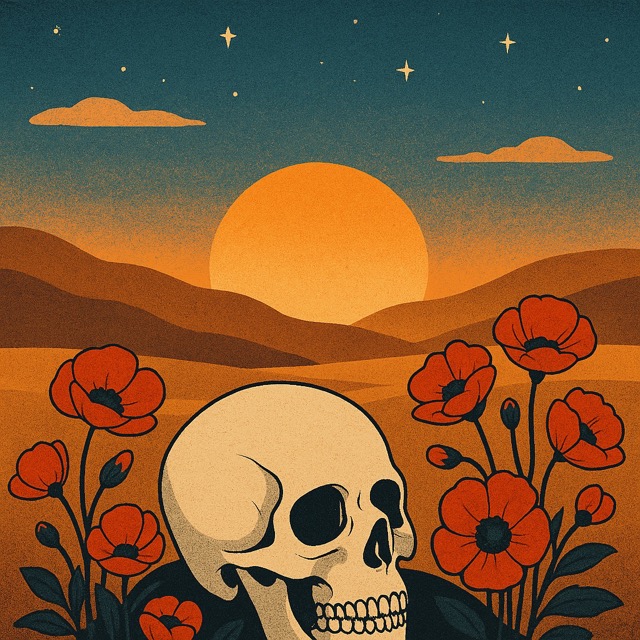Many have written about death and immortality. Thomas Nagel tells us death is bad because it deprives us of future goods. Bernard Williams warns that immortality would be unbearably boring. Borges paints immortals as apathetic troglodytes. Martha Nussbaum emphasizes that mortality gives life urgency.
These are clever points, but they all miss something important. They partially assume there is a natural limit to human life; they ignore unknown unknowns; and they lean heavily on the self: my desires, my projects, my boredom. I think there is a better way to see things. Specifically, that death is always premature, immortality is not boring, and the real problem with the pro-death camp is a failure of imagination.
Nagel and the problem of timing
Nagel’s essay Death raises a simple puzzle: if death is bad, when is it bad? Not before death, because you are still alive. Not after death, as you no longer exist. Nagel concludes that death is not like pain, which has a clear moment. It’s bad because it deprives you of future life you might have had. If you die at 30, you lose out on the decades that could have followed.
Though Nagel rests his account on the idea of a natural lifespan of about 100 years, he explicitly says that dying at 82, or even at 806, would still be a misfortune. The badness of death isn’t relative to cultural standards or averages. It lies in the deprivation of any further goods that could’ve been experienced. Just as blindness is still a misfortune even if it’s normal for moles, death remains a misfortune even if it’s natural for humans. Mortality itself, he argues, is a harm, because our sense of our own future is open-ended. We don’t experience ourselves as bounded by a fixed endpoint.
And so the harm of death doesn’t depend on comparing ourselves to social benchmarks of lifespan. It applies across all ages and all eras. Whether someone dies at 22, 82, or 806, the deprivation is the same in kind: the loss of possible goods that would’ve been part of continued life.
Williams and the boredom of immortality
Williams took the opposite route. In The Makropulos Case, he argued that living forever would drain life of meaning. His key point was that our lives are shaped by what he called categorical desires. These are projects and commitments that give life direction. If you lived forever, he said, you’d either fulfill these desires and run out, or lose interest in them. The result would be boredom.
That argument may have made sense in 1973, when Williams was writing. Back then, life moved at a slower pace. But today, novelty arrives at breakneck speed. Entire industries rise and fall in a decade. AI, virtual reality, gene editing, renewable energy, even space travel—these are worlds that didn’t exist when Williams wrote his essay. In a century, a person can experience several completely different realities. The boredom argument doesn’t hold in an age of acceleration.
Williams also wrote as if life were only about fulfilling your own desires. What about other people? Even if you ticked off everything on your list, there’d still be endless opportunities to help others. Ending poverty, curing diseases, fighting climate change, building fairer societies—these are projects that can’t be finished in one lifetime. They are inexhaustible. Williams’s argument misses the fact that meaning doesn’t end when you stop chasing your own pleasures. It multiplies when you turn outward and expand your circle of moral concern.
Williams also assumed people know their desires in advance. But most desires are discovered only when circumstances change. Nobody in 1900 dreamed of antibiotics or VR headsets. People in 2000 were not longing for generative AI tools. Immortality guarantees that new conditions will arise, sparking new wants. There is no closed catalog. Human creativity makes sure of that.
Borges and the apathy of the Immortals
Borges’s story The immortal adds a literary version of the boredom argument. A Roman soldier drinks from a magical river and gains immortality. He finds others who’re immortal, but they’ve become apathetic, living in ruins, careless of their city. Over time, he sees immortality as a curse.
This story looks like support for Williams, but I see it differently. First, there’s envy and homocentrism. The soldier sees the Immortals as troglodytes, assuming their way of being is empty. But maybe their state of existence is simply different, optimized for them, and incomprehensible to mortals. That judgment is more about his ego than about truth.
Second, there’s egocentrism in the Immortals themselves. They give up on their city because they’re bored. But why not use their time to help the mortals outside their gates? They could share knowledge, teach arts, improve health, spread wisdom. Instead, they withdraw. Their failure isn’t proof that immortality is hollow. It’s proof that imagination can die even when the body cannot.
Finally, there’s hypocrisy. If immortality is truly unbearable, why didn’t they simply end their lives? If death is such a relief, why didn’t they embrace it? They lingered, meaning even the bored Immortals still valued life in some way. Their refusal to act undermines them.
Nussbaum and the unfinished project
Martha Nussbaum, who won the $1m Berggruen Prize in 2018, began as Williams’s student but later pushed back against his boredom thesis. She pointed out that death interrupts long-term projects and makes them empty. This argument came originally from David Furley, which she sharpened. Death makes our commitments fragile; it robs us of the time needed to finish what we start.
Ironically, Williams himself died in the middle of serious philosophical work, taken by an incorrectly diagnosed cancer. If medical science had advanced faster, he might’ve lived to publish more. His death illustrates Nussbaum’s point: immortality isn’t the problem, but lack of enough time.
Why one life?
Williams worried that the same “you” would get bored. But why assume one life equals one self? Why not live multiple lives in one body? With enough time, you could be a farmer for fifty years, then a painter for a century, then a doctor, then a traveler.
Andrew Stark counters this in an argument for death over immortality in his book, The Consolations of Mortality. His view hinges on misaligned values and lost relationships:
“If you want to keep jettisoning your goals, attachments and memories and replacing them with new ones over time to avoid boredom, that would be the same as dying and becoming someone entirely different. You’re not going to share any of the values you have now, and you’re not going to have any of the relationships you have now. So essentially, you’re going to die anyway because everything you’re attached to now will be gone. In this way too, sooner or later immortality would turn into its own form of death.”
This appears valid at first glance — we intuitively want to retain our most cherished relationships and personal values. But it’s easily disproven with a simple observation: you’re not the same person you were at 5, and likely haven’t kept the same friends since kindergarten. You grew up, adopted new values, and made new friends. You no longer believe it’s okay to pee on yourself, and you (hopefully) can strike up conversations to make new friends. So even without immortality, the values-and-relationships argument falls apart.
I also think that overlaps and repetition wouldn’t be problems; they would build empathy. Imagine living long enough to know what it feels like to be a parent, a teacher, an engineer, an accountant, and a scientist. Or what it must feel like to be an Arab, African, Canadian, or Asian. Wars are often fought out of ignorance. If we could live others’ lives, we might be less quick to destroy them.
Think about how travel broadens perspective today. People who live abroad often come back with more empathy and less hostility. Immortality would let us live entire lifetimes in those other contexts. Instead of shrinking our identities, it’d expand them. Nussbaum recognizes this in a lecture she gave at the University of Chicago, alluding to the potential to create more justice in the world if one ever got tired of living multiple lives.
Hypocrisy
Arguments against immortality are inherently hypocritical. Immortality isn’t just about avoiding death but also extending life. That assumes a longer life is desirable. If you reject immortality, you’re really saying a long life itself is undesirable. But if that’s true, why not end things now? Why wait for some arbitrary future when you might die, instead of taking matters into your hands today?
The usual answer is, “I don’t want to die right now—I just want to enjoy a normal life first.” But a “normal life” is relative. Today, 100 years might seem normal. A century ago, 50 or 60 was normal. Five hundred years from now, when people live to 500, dying at 100 will feel like dying in your teens. Normal life span is a moving target, and calling anything beyond it “excessive” is pure relativity.
It’s the same way everyone wants to go to heaven but nobody wants to die. People claim not to want immortality, yet nobody volunteers to cut life short. Their stated position (“death is fine”) clashes with their revealed preference (“not yet”).
Old age
Much of our talk about death and immortality is biased by current views of aging. We assume life would get unbearable because we wouldn’t be mobile, healthy, or energetic. But that’s not about immortality—it’s about how we treat aging today.
History shows how flexible these categories are. In ancient times, a 16-year-old might already be fighting in wars or raising a family. Today, 16 is considered childhood. Our expectations of “old age” shift with life expectancy. If we find ways to preserve mobility and energy, then growing old will no longer mean decline, and a longer life will not mean boredom.
So the fear of immortality is really just a fear of aging badly. Once we solve energy and ability, longer lives will look less like a burden and more like an opportunity.
The failure of imagination
The claim that life would get boring is also a failure of imagination. A boring life assumes you can’t change it. But an immortal life gives you more power than anyone else to change things, because you’ve seen so much. You’d know where the edges of possibility lie, and how to push them.
Think about the first humans. They might have thought life would get boring after 30 or 40 years. Instead, they imagined fire, tools, art, and language. If they’d chosen boredom over imagination, we wouldn’t be here at all. We are their legacy of refusing to settle.
Pro-death, or more accurately, “anti-immortality” views not only rob us of chances today but also rob future generations. Every early death erases knowledge, wisdom, and possibilities that could’ve been passed on. Every extra year adds value not just for the person living it but for everyone around them. It’s not about selfishness, but collective progress.
The open horizon view
All this leads me to what I call the open horizon view. Nagel was right that death is deprivation, but wrong to tie it to a natural lifespan. Williams was right that life needs projects, but wrong to think those projects run out. Borges was right that immortality can produce apathy, but wrong to think apathy is inevitable. Nussbaum was right that death interrupts our projects, and her later reflections show she too longed for more time. Other philosophers like John Danaher have come to similar conclusions.
The open horizon view says that death is always premature, immortality is not boring, and meaning is inexhaustible. Every life is an unfinished project. Every future is worth protecting. The real problem isn’t living too long, but not living long enough.
This leaves us with a choice. We can keep defending death as natural and inevitable. Or we can accept that these arguments rest on shaky assumptions about boredom, natural lifespans, and fixed identities. We can face the truth: death cuts us off too soon, every time. The answer is not to glorify mortality but to push for longer, healthier lives. To do otherwise is to sell ourselves, and future generations, short.
Death isn’t a friend, but a thief. Let’s make it steal less and less.


